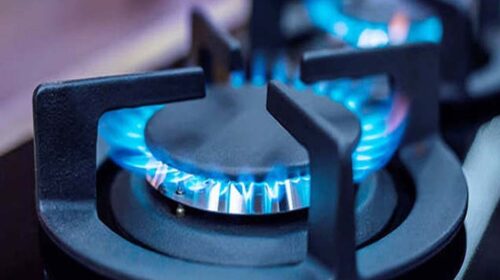In a major development for the power sector, the Senate passed on Thursday the Weighted Average Cost of Gas (WACOG) bill. The development was announced by Federal Minister for Energy Hammad Azhar who said the bill is a “historic reform”, which will ensure Pakistan’s energy security. “WACOG bill has been passed today by Senate as well. It is a historic and long-pending reform that will ensure the energy security of Pakistan,” said Azhar in a tweet.
The federal minister was of the view that the development would allow the government to embark upon the reform of the “gas pricing structure, remove anomalies and enhance supplies of imported gas”.
Azhar said that the reform is as significant as the approval a couple of months ago of Indicative Generation Capacity Expansion Plan (IGCEP) model for power purchase.
“Both historic reforms in power and petroleum sector have been carried out by PTI govt in the last six months,” he added.
Gas-related issues also on agenda: CCI likely to help resolve interprovincial water disputes
Last month, Azhar in a press conference said that the government has evolved consensus on WACOG under which the average gas prices are estimated to go up by 30% gradually over the next few years.
“We are not going to increase these gas prices immediately but in a phased manner as the government expected the international LNG prices would come down in the coming month.”
“At present, local gas supply and LNG import have a 70:30 ratio. This would change to 50:50 in two years but the share of the LNG would increase to 80-90pc in a few years for which the WACOG was important,” Azhar said then.
Sale of Liquefied Natural Gas: Bill on weighted average cost on the cards
Reaction
Meanwhile, Tahir Abbas, Head of Research at Arif Habib Limited (AHL), termed the latest development as a step in the “right direction”.
“Under the WACOG bill, all gas sources including RLNG and local gas will be pooled in and a weighted average cost will be taken for gas purchase,” Tahir said while speaking to Business Recorder.
“The bill comes as there is a massive disparity in RLNG and locally produced gas, which makes RLNG unfeasible for purchase, and needs to be sold at subsidised rate,” he said.
Elaborating on the weighted average price, the market expert said that “RLNG rate stands at $15 mmbtu and makes up 23% of the share, whereas the price of local gas comes at around $3 and its share stands at 77%, which adds up to a weighted average cost of $5.86”.
Abbas was of the view that with the latest move, gas prices are expected to increase both for residential and industries, which would add to the cost of production.
Meanwhile, Samiullah Tariq, Head of Research and Development at Pakistan Kuwait Investment Company (Private) Limited, told Business Recorder that the issues pertaining to gas shortage would be address with this development.
“This is a good step and it will be good for the industry as well,” said Tariq.
“Imported gas can be used now, which was unfeasible earlier. Gas prices are expected to go up over 30%. However, it would be the prerogative of the government to pass the increase to the consumers,” he said.
The move comes as Pakistan’s dependence on imported gas increases as local gas reserves deplete.
“However, the government has awarded a number of exploration licences in recent weeks, and it is expected that upcoming discoveries would address the demand and supply gap,” added Tariq.
Apart from WACOG bill, the Senate unanimously passed the Oil and Gas Regulatory Authority (Amendment) bill, 2022, the Oil and Gas Regulatory Authority (Second) Amendment Bill, 2022 and the Allied Health Professionals Council Bill, 2022.







